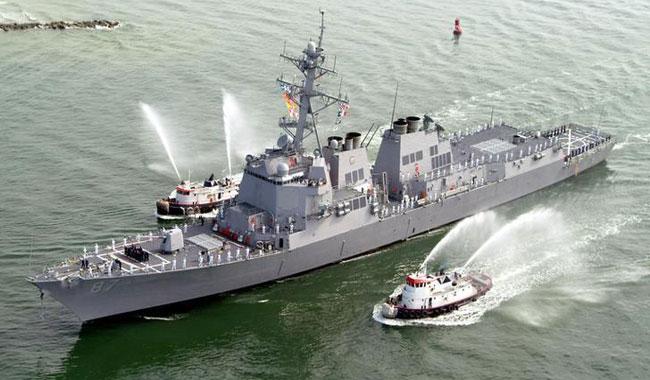US sees mounting evidence of Houthi role in strike on U.S. warship

WASHINGTON: The United States is seeing growing indications that Houthi rebels, despite denials, were responsible for Sunday's attack on a Navy destroyer off the Yemen coast, U.S. officials told Reuters.
The rebels appeared to use small skiffs as spotters to help direct a missile attack on the warship, said U.S. officials, who are not authorized to speak publicly because the investigation is ongoing.
The United States is also investigating the possibility that a radar station under Houthi control in Yemen might have also "painted" the USS Mason, something that would have helped the fighters pass along coordinates for a strike, said the officials.
Neither of the two missiles fired from Houthi-controlled territory on Sunday hit the USS Mason or the nearby USS Ponce, an amphibious transport dock. But the incident threatens to trigger the first direct U.S. military action against Houthis in Yemen's conflict, even if it is limited to one-off retaliation.
The Houthis have publicly denied any role in the strike. A senior Western diplomat told Reuters those denials have been communicated privately as well.
But the emerging details of Sunday's incident, if confirmed by a U.S. investigation, would lend further support to the Pentagon's claims that "the facts certainly seem to point" to Houthi involvement. The U.S. military even hinted on Tuesday at possible preparations for a retaliatory strike.
"Anybody who takes action, fires against U.S. Navy ships operating in international waters, does so at their own peril," Pentagon spokesman Captain Jeff Davis told a news briefing.
The Houthis, who drove Yemen President Abd Rabbu Mansour al-Hadi from the capital in 2014, had previously avoided targeting U.S. military ships.
Although the United States has provided limited support for the Saudi-led coalition battling the Houthis, it also has reserved its direct military role in Yemen to the fight against al Qaeda's affiliate, al Qaeda in the Arabian Peninsula.
That general U.S. policy might still remain in place, even if it opts to carry out one-off retaliatory strikes.
Yemen's war has killed at least 10,000 people and brought parts of the country to the brink of starvation.













No comments